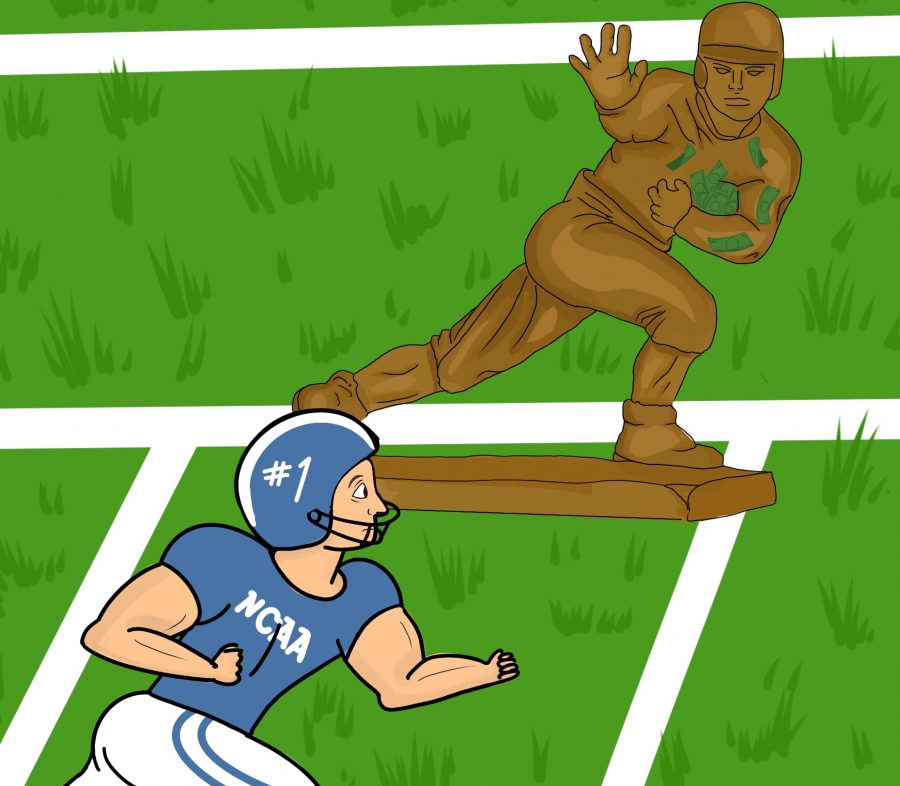In March of 2019, the NCAA Division I Men’s Basketball Tournament, better known as March Madness, made roughly 900 million dollars, absolutely none of which went to those who actually played the games. In fact, those athletes are strictly forbidden from getting any sort of compensation. That $900 million is more than the revenue from the Super Bowl and NBA Finals combined, two events where athletes make tens of millions of dollars.
Due to the NCAA’s rules on “Amateurism,” college athletes are prohibited from receiving any kind of payment. Any violation of those rules, intentional or otherwise, can and has resulted in excessive punishment, sometimes even lifetime bans from college sports. Defying the NCAA, California recently passed a bill which will take effect in 2023 and will allow players to accept sponsorships. This new law is an effective way to compensate athletes while costing the NCAA nothing.
At the moment, the only form of compensation athletes are allowed to receive is through scholarships, but flaws still exist within the system. Many athletes have expressed how little time students actually have for school work. When they have practices every day, when would they even be able to attend classes, much less study?
In addition, according to the NCAA itself, less than two percent of collegiate athletes will go on to play professionally. These students are sacrificing their education and futures, making money for the NCAA in the process, just for the slim chance of making it to the pros.
In terms of potential fixes, increasing salaries will not work, as this would give an unfair competitive advantage to schools with more money. Making the schools pay would also likely lead to many programs shutting down due to the extra financial burden of such an expensive operation. The NCAA itself could not pay the athletes, as different players add different values to different teams, depending on their position and skill level.
In order to determine how much each player would earn, the NCAA would have to publicly decide who deserves what. It would be incredibly controversial if an organization like the NCAA were to effectively rank the value of every single player in college athletics, not to mention that is an impossible process given the number of players who would be involved.
The only option that makes sense, the closest thing to a win for all sides, is to allow athletes to profit off their likeness. It should not matter to the NCAA if a player is sponsored by different brands, and, if it wanted to, the NCAA could even take a portion of the earnings as a tax. The NCAA could probably make a profit partnering with players, turning it into even more of a win for the governing body.
The life of a college student is already hard, even without the time these athletes put into their passion. The NCAA turns a ridiculous profit without giving any of it to those that do the work, and the organization actively prevents them from gaining money in any other form. It would make sense for all sides if these players could accept sponsorships or other forms of income.
If the new California law is successful, it is possible that this system could become the new norm, as it should. The bill was passed despite the NCAA directly requesting its denial. If at least one state has recognized this is the right way to go, it may spread to the rest of the country. The athletes deserve to be compensated for all of the work and effort they put into our entertainment, and this is the only way that could happen.





























